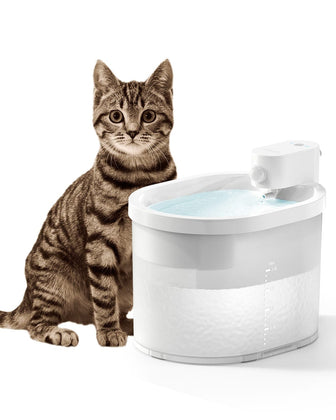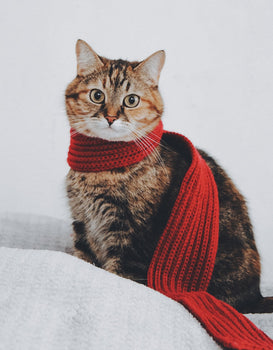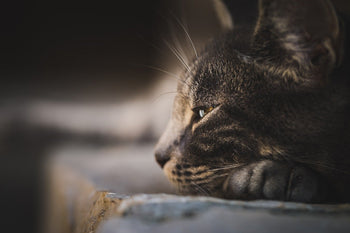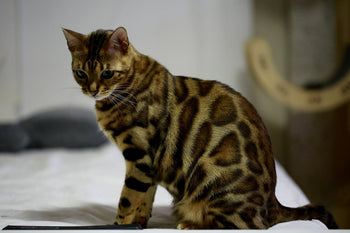Cats are known for their independence and aloofness, but many cat owners have experienced their feline friends displaying attachment and loyalty towards them. This raises the question, do cats imprint on their owners? Imprinting is a form of learning that occurs during a critical period in an animal's early life, resulting in a strong and long-lasting bond with a specific individual or object.
Early Life and Socialization play a crucial role in imprinting. During the first few weeks of life, kittens learn social skills and develop attachments with their mother and littermates. If a kitten is separated from its mother too early or has limited exposure to other cats, it may have difficulty forming social bonds later in life. Bonding and Attachment are also important factors in imprinting. Cats can form strong bonds with their owners through positive interactions such as play, grooming, and feeding.
Behavioral Consequences of Imprinting can include increased affection and loyalty towards their owner, as well as anxiety or aggression towards strangers. However, it is important to note that not all cats imprint on their owners, and some may have a more independent nature. Understanding the concept of imprinting can help cat owners better understand their feline companions and strengthen their bond.
Do Cats Imprint? Exploring the Science Behind Feline Attachment

Key Takeaways
Early Life and Socialization play a crucial role in imprinting.
Cats can form strong bonds with their owners through positive interactions.
Imprinting can result in increased affection and loyalty towards their owner.
Early Life and Socialization
Critical Period for Imprinting
Cats, like many other animals, go through a critical period for imprinting during their early developmental stage. This period takes place during the first few weeks of a kitten's life and is crucial for their social development. During this time, kittens learn to recognize their mother and siblings, as well as other cats and humans they will interact with throughout their lives.
Role of Early Experiences
Early experiences play a significant role in shaping a cat's behavior and personality. Kittens who are exposed to positive experiences during their critical period for imprinting are more likely to grow up to be confident and well-adjusted cats. Conversely, kittens who are exposed to negative experiences during this time may develop behavioral issues such as fearfulness, aggression, or anxiety.
Impact of Socialization
Socialization is also an important aspect of a cat's early life and can have a significant impact on their behavior as adults. Kittens who are exposed to a variety of people, animals, and environments during their socialization period are more likely to be well-adjusted and adaptable cats. On the other hand, kittens who are not properly socialized may be fearful or aggressive towards unfamiliar people or animals.
In conclusion, the early life and socialization of a cat play a crucial role in their development and behavior as adults. It is important for cat owners to provide their kittens with positive experiences and socialization opportunities during their critical period for imprinting to ensure they grow up to be confident and well-adjusted cats.
Bonding and Attachment
Formation of Bonds
Cats are social animals that form strong bonds with their owners. The formation of bonds between cats and humans is a complex process that involves several factors, including socialization, genetics, and early life experiences. Kittens that are exposed to humans during their critical socialization period (between 2 and 7 weeks of age) are more likely to form strong bonds with humans later in life.
Imprinting and Bond Strength
Imprinting is a process by which a kitten forms an attachment to its mother or another object during a critical period early in life. Imprinting can also occur between a kitten and a human caregiver, resulting in a strong bond between the two. The strength of the bond between a cat and its owner depends on several factors, including the cat's personality, the quality of care provided by the owner, and the amount of time spent together.
Attachment to Owners
Cats can form strong attachments to their owners, often exhibiting behaviors such as following them around the house, seeking out their attention, and cuddling with them. The strength of the attachment between a cat and its owner can be enhanced through positive reinforcement training, such as rewarding the cat for desirable behaviors, and through spending quality time together.
Overall, bonding and attachment between cats and their owners is a complex process that depends on several factors. By providing a loving and nurturing environment, owners can enhance the strength of their bond with their feline companions.
Behavioral Consequences of Imprinting
Influence on Behavior and Personality
Imprinting can have a significant impact on a cat's behavior and personality. It can affect their socialization skills, communication abilities, and even their hunting instincts. Cats that have been imprinted may display more affectionate behavior towards their owners or may be more skittish around strangers. They may also be more vocal or have a higher tendency to mark their territory.
Examples of Imprinting-Related Behaviors
Cats that have been imprinted may display certain behaviors that are unique to them. For example, they may have a particular preference for certain types of toys or food, or they may have a heightened sensitivity to certain sounds or smells. They may also exhibit more territorial behavior, such as marking their territory with urine or scratching furniture.
Addressing Behavioral Issues
If a cat's behavior is causing problems, it is important to address the issue promptly. This may involve working with a professional behaviorist to identify the underlying cause of the behavior and develop a plan to modify it. In some cases, medication may be necessary to help manage the cat's behavior.
Overall, while imprinting can have significant effects on a cat's behavior and personality, it is important to remember that each cat is unique and may respond differently to imprinting. By understanding the potential consequences of imprinting and working to address any resulting behavioral issues, cat owners can help ensure that their pets lead happy and healthy lives.
Conclusion
In conclusion, while there is evidence to suggest that cats may form attachments to humans and other animals, the concept of "imprinting" as seen in other species such as ducks and geese does not seem to apply to cats.
Unlike these species, cats are not born with a strong innate preference for a specific individual or object. Instead, they develop preferences and attachments based on their experiences and interactions with their environment and those around them.
It is important to note that every cat is unique and may have different preferences and behaviors. Some cats may be more social and affectionate while others may be more independent and aloof.
Overall, while cats may not imprint in the traditional sense, they are still capable of forming strong bonds with their human and animal companions through positive experiences and interactions.

Frequently Asked Questions
At what stage in their development do cats typically form imprints?
Cats typically form imprints during their early kittenhood. This is the stage when they are most receptive to socialization and bonding with their mother and littermates. However, cats can also form imprints on humans at any age, depending on their individual personality and experiences.
How can you tell if a cat has imprinted on you?
A cat that has imprinted on you will often show signs of affection and attachment, such as following you around, seeking your attention, and purring when you pet them. They may also show signs of distress or anxiety when you leave or are away for an extended period.
Is it possible for a cat to form a bond with more than one human?
Yes, cats are capable of forming bonds with multiple humans, as well as other animals in their household. However, the strength of the bond may vary based on the individual cat's personality and experiences.
What are the signs that a cat considers you their favorite person?
A cat that considers you their favorite person may show signs of preference, such as seeking your attention over others, sleeping near you, or bringing you gifts. They may also show signs of distress or anxiety when you are upset or not feeling well.
How do cats show attachment to their owners?
Cats show attachment to their owners through various behaviors, such as following them around, seeking their attention, and showing signs of distress when they are away. They may also rub against their owner's legs, purr when petted, and bring them gifts.
Does a cat sleeping next to its owner indicate trust and imprinting?
While a cat sleeping next to its owner may indicate trust and attachment, it is not necessarily a guarantee of imprinting. Cats may also choose to sleep next to their owners for warmth or comfort, or simply because they enjoy their company.

















